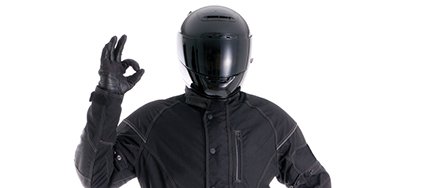Dr Alan Moran provides some tips on motorcycle safety
Imagine you were to do your finals every three years.
Imagine you couldn’t practice medicine unless you passed. You had to stop working.
I often explain to patients that medicine is changing and the answers that were right 35 years ago may be wrong now. And the answers that are right now may be wrong in 10 years, never mind 35 years’ time. This does not change.
Of course this is only right, as people’s lives are at stake. Imagine as drivers we had to retake our driving test every three years and in order to get the test we had to achieve a certain standard. Imagine in order to keep it, we had to keep that standard. Imagine getting re-tested every three years. There a lot of people out there who would think that nuts. ‘Why test me, I’m a good driver? Everyone else is at fault. Everyone else is a bad driver.’ One good thing is that the test does not change every three years.
Motorcyclists have an organisation they can belong to on a voluntary basis to achieve just that. Insurance companies offer discounts on insurance to drivers who remain members and remain at a certain standard. I joined many years ago because I liked the idea of riding a motorcycle and liked the idea of being able to walk. I wanted to remain as safe as I could. In order to retain the standard, there is a re-test every three years. It’s great for keeping you on your toes (or tyres, as the case may be).
To be honest, the rules are simple. I’ll run some past you.
Before you get on the bike, there is the POWDERS check.
This is a mnemonic for checking Petrol, Oil, Water (all fluids really, including brake and clutch fluid) Damage, Electrics (think all bulbs) Rubber (tyres), Suspensions and Steering.
Now think back on the last time you did all that on your car. I mean all of that.
Then there is the check on the most important part of the motorcycle — the nut holding the handlebars.
Then there is the IAMSAFE acronym.
This includes Illness, Attitude, Medication, Sleep, Alcohol, Food and Emotion.
Not that you can’t ride a motorcycle when you have a runny nose, but let’s say you sneeze. Your eyes reflexly close for so many seconds, one second of which equates to 88 feet (or 26 meters) at 60mph. Don’t think your passengers would like it if you regularly closed your eyes as a bus driver…
This acronym was borrowed from the aviation industry (it will be left back when we’re finished with it!). Personally, I prefer HALT: Hungry, Angry, Late, Tired, borrowed from the Medical Protection Society.
On the road, you’re expected to drive all the time as if you’re on test. This way, good driving becomes second nature. For instance, you don’t cross solid white lines, you attempt to stop at amber traffic lights (and definitely red ones), drive at the speed limits (remembering it’s a limit, not a target) yet all the time ‘making progress’. Failure to make sufficient progress when conditions are favourable is frowned upon. It means you don’t have full control of the bike.
Mirror use is vital. Motorcyclists are vulnerable and need to know exactly what’s going on around them. Checking the mirrors every few seconds and after changes of position is unfamiliar to most people after the test becomes history. Try it on your next car journey and take notice of how much is happening in front and to the sides you thought you knew about.
Motorists have their own branch of the organisation, as well as the institute of advanced motorists.
There are several books available on the subject. You know those patients who want sleeping tablets? No matter what you suggest, they are resistant to the idea of sleep hygiene? Insist they read the book Motorcycle Roadcraft: The Police Rider’s Handbook to Better Motorcycling. They’ll sleep reading that.













Leave a Reply
You must be logged in to post a comment.